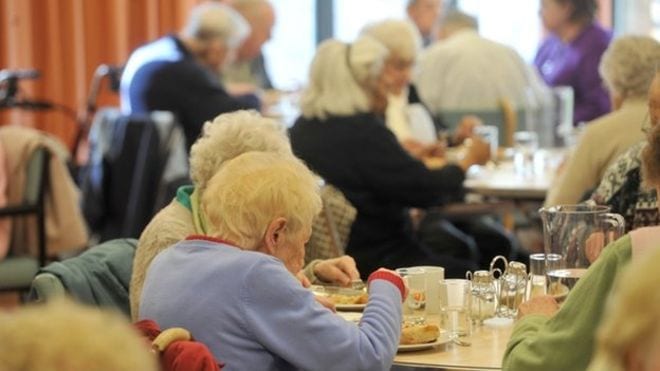
 As the general election approaches, social care will be one of many issues Britain’s 10 million over 65s will be judging their vote on.
As the general election approaches, social care will be one of many issues Britain’s 10 million over 65s will be judging their vote on.
The last few weeks have seen all the major political parties spar over this political hot potato – with a raft of proposals from Labour’s suggestion to increases taxes to Theresa May’s proposal to charge people needing social care at home to pay for it until the value of their assets – including their property – reaches £100,000.
With each of the parties’ manifestos released, it has become clear that no one politician or party has a cure-all for this issue, which will only become more important as our aging population grows.
This debate is of interest to Stannah because many of our customers are receiving some form of social care with stairlifts often playing a central role in their lives, giving them greater independence.
Whilst there’s considerable talk around how the government and the public should support those requiring care, we feel there’s been a lack of representation of those directly impacted: those aged 65 and over who may already be in or approaching the need for care.
For this reason, we centred our latest Silver Census research around social care, polling 2,000 people aged 65+ and living in the UK, asking what their expectations and hopes were if they ever required social care.
Our data revealed that the majority (three quarters) of people in this age bracket would prefer to be cared for in their own home, with two thirds expecting their wishes to be fulfilled.
Unfortunately, there appears to be a significant gap between reality and expectations, with a relatively small proportion of people currently receiving state-funded care in their own homes, according to data from the UK Homecare Association.
We believe that enabling people to stay in their homes for as long as possible is best for everyone, minimising the stress for those receiving care while lessening the burden on the state.
The fact that almost a quarter (24%) of people have made changes to their homes, to enable them to live in them for longer, reflects the determination of people to remain independent for as long as possible.
Our research also showed that two thirds (67%) of those aged 65+ consider themselves to be financially responsible for their own care.
Clearly there is a balance to be struck with a policy which enables people to benefit from their wealth, while also providing quality care for those who are unable to contribute themselves.
Regardless of whoever wins the election, the reality is we can no longer rely on the state to always be there to provide for us in the way we would prefer to be cared for.
We would urge anyone approaching the need for care to create a plan and discuss their options, to avoid disappointment in the future.

Stay up to date
Latest Blogs

Whole Home Comfort with Stannah and HSL

Dame Zandra Rhodes x Stannah: When accessibility meets style
Could more people benefit from home adaptation support for hidden disabilities?
50 years of Stannah Stairlifts – A milestone grounded in purpose

BBC’s Dr Punam Krishan reveals a little-known Parkinson’s symptom to watch for...

Are you at risk of falling? Dr. Punam Krishan’s simple 12-second test could tell you...

Snore Wars: Could sleeping separately be the secret to a better night’s rest?

Proud to carry the Made in Britain mark!
Stairlifts made for you
All our stairlifts whether straight or curved are customised to suit you and your home so call now to arrange a visit to get your FREE personalised quote!